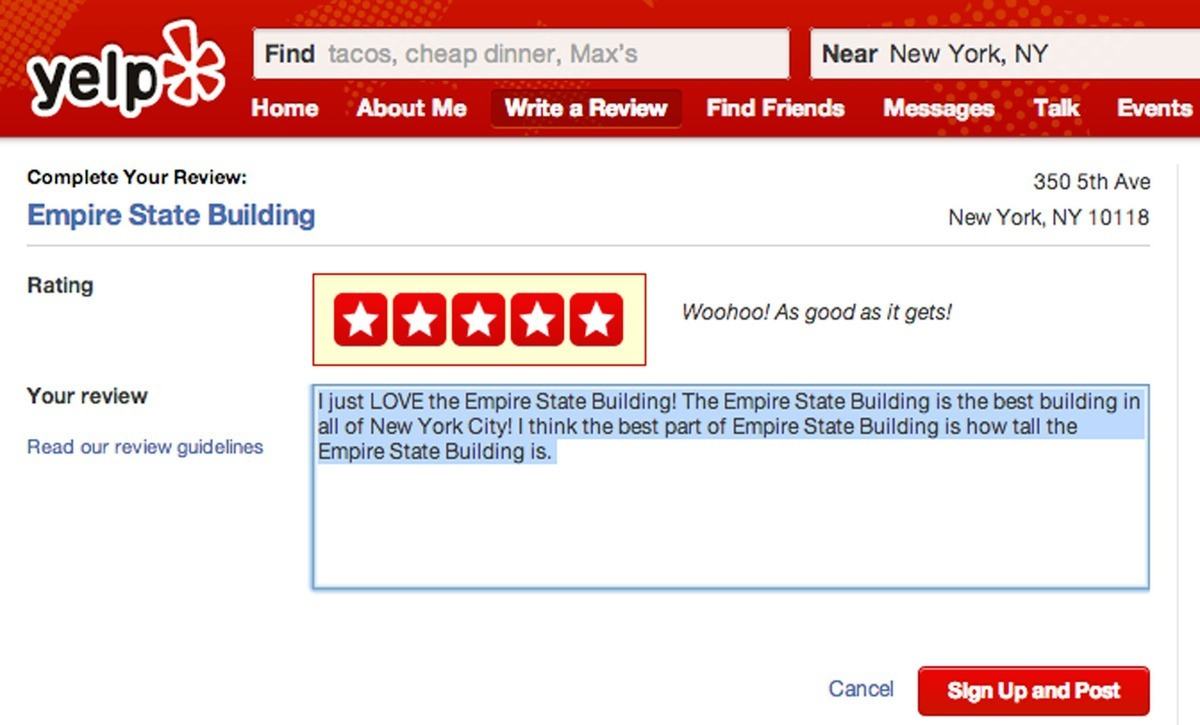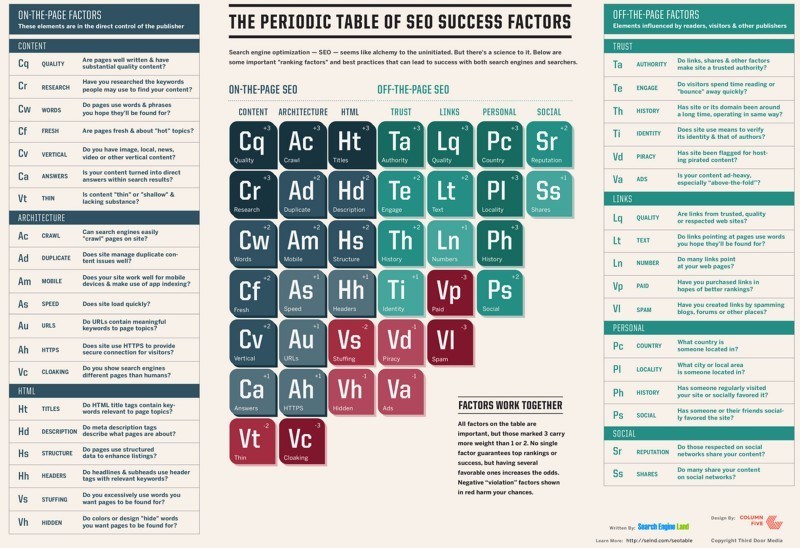The SEO industry has always been largely open to opinion, with effective techniques regularly debated and disputed. Google and other search engines hide behind a complex ranking algorithm using over 200 factors, with no-one knowing all of the elements that Google takes into account when ranking a site or how much weight it gives to different factors.
The result of this dynamic is that swarms of strange myths come and go; what’s more, in the wrong hands, a little bit of inaccurate information can be dangerous. In this post, I’ve highlighted some myths I commonly encounter and explained why they are just that.
1. The Client is Always Right
No, they are not.
Of course, this doesn’t relate to the customer service motto that stipulates that the customer is always right; in fact, it has nothing to do with customer service at all. But when it comes to SEO, just because a client wants something to happen it doesn’t make it right. It’s important that you at least try to explain to clients why they are barking up the wrong tree and what they should be focusing on instead.
Clients often have some idea of what SEO is all about and what works, but a little bit of information can be dangerous. Just because a client is leading you to do something, this doesn’t mean you automatically should. If there is something more pressing that is a better use of their time, or you as the expert simply don’t think that what they’re suggesting is a good idea, then make sure you say so.
They may also have goals that have been handed down by superiors but don’t actually mean anything or are unachievable. A common example is when a client is concerned only about keyword rankings or ranking first for a certain keyword. If you spend too much of your time focusing on that just because the client is, you can find yourself wasting valuable time on insignificant tasks.
Part of managing campaigns and client expectations is to educate and sometimes re-educate them, so that your goals and focuses are aligned. Try to explain that measuring a keyword position isn’t as valuable a KPI as, say, increasing revenue. Ultimately, you both want the project to be a success, but it’s important to clarify what success looks like and make sure you’re both focusing on true and valuable metrics.
It’s much better to have these conversations face to face, or at least over the phone. Avoid having disputes like this via email as you may not come across in the right way.
2. Doing AdWords PPC Helps Boost Organic Rankings
No, it does not.
This myth has been floating around for many years and is no truer now than it ever was. Google AdWords and the paid ads in search results are completely separate from organic search results. Google categorically does not use any data from AdWords listings in its main organic algorithm.
Of course, AdWords can be extremely beneficial in conjunction with good SEO and can increase your overall exposure and real estate in the SERPs by giving you an ad and an organic result if you rank well.
However, there is no correlation between these two channels.
3. Keywords Don’t Matter Anymore
Yes, they really do.
Particularly after the Hummingbird update, rumours started emerging that keywords were no longer important as all that mattered was contextual content. This is simply not true. While elements like context and keyword themes are more important than ever, keywords are still very much a fundamental element of SEO.
Carrying out keyword research and optimising pages for the best target keywords is vital and is still one of the most important parts of on-page SEO. Don’t neglect keyword variations, themes and surrounding content for context, but don’t assume that’s all you need.
You should still aim to include your target keyword naturally in the following places on each page:
- Page title
- Meta description
- H1 header
- Page content
- H2 headers (if possible, natural and appropriate)
- Image alt text (if natural)
NB: I am not referring to Meta keyword tags; they don’t matter (unless you are optimising for some international search engines). This relates to on-page keyword research and targeting.
4. Google Won’t Know if we Create Fake Reviews and Ratings
Well yes, actually, it probably will.
It is dangerous to underestimate Google’s ability to detect spam or unnatural behaviour and writing and arranging fake reviews and ratings is a risky business indeed. No one knows the extent of Google’s ability to identify web spam or all of the signals it uses, but it is certainly good at spotting and penalising unnatural links and spammy reviews. Of course, as well as the algorithm, there is a dedicated webspam team at Google whose job is to spot unnatural activity like this.
Of course, some fake reviews are easier to spot than others:

Source: Mashable
Encourage your customers to leave natural, positive reviews. Build it into your workflow process by following up via email promptly to check customers are happy and give them a link to leave a review.
Do not offer incentives as this can also lead to unnatural behaviour and leave you at risk of being flagged for spam. If you value your rankings, particularly locally, then don’t take the risk.
5. Guest Blogging is Dead
No, it isn’t.
Matt Cutts was probably responsible for the initiation of this rumour after he wrote a blog post about avoiding low-quality guest posts, claiming that we should ‘stick a fork’ in spammy guest posting. People quickly jumped on this and were quick to declare guest blogging dead. But that wasn’t the full message.
A good guest post is content posted to a reputable external site in your industry with a decent following and a relevant target audience who are likely to engage or click through to your site.
Guest posts that should be avoided are those on low-quality, irrelevant or spammy sites or blogs that don’t show any signs of reader engagement. If it looks like a bad neighbourhood or simply appears that no-one is reading the blog, steer clear. If, on the other hand, you think your target audience is likely to be on the site, a guest post can be a really valuable asset for brand exposure and qualified referral traffic.
Of course, spammy guest blog requests like these are definitely ones to avoid!
6. Link Building is Dead
No, that isn’t dead either.
There is no denying that link building has changed dramatically, and that building quality links today is much more difficult than it once was. It’s also true that building the wrong sort of links, such as low-quality, spammy or paid links, can cause much more harm than good and result in manual or algorithmic penalties. However, to say link building is dead and ignore it completely would be a fatal mistake.
Links are still a big part of SEO and remain one of the biggest signals that search engines use to understand trust and authority. The key thing to remember is that, just like guest posts, it’s all about quality rather than quantity.

Source: Search Engine Land
Links are still very important, but must not breach any of Google’s guidelines on link schemes. For inspiration, you can get some good link-building ideas that still work here.
7. SEO is Dead
It absolutely isn’t, and it never will be.
The fact is that for as long as search engines exist, websites will gain great value from ranking highly in search results for their target queries. This means that, whatever new guidelines come in, whatever algorithm updates are implemented, SEO will never die.
There are new channels that are great for delivering traffic and driving business, such as social media and remarketing, but organic search still delivers the majority of traffic and business for many websites.
For more information on our SEO services or more advice on Digital Marketing techniques that deliver results, please get in touch with us or leave a comment below.


Leave a Reply